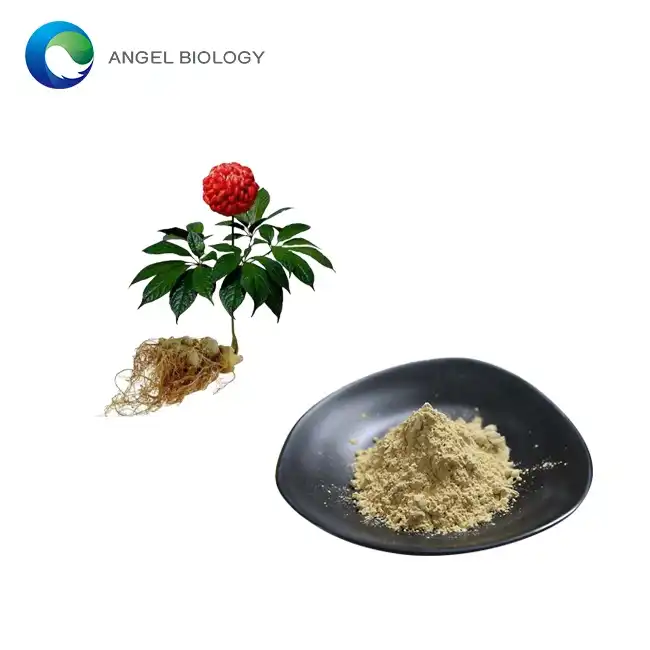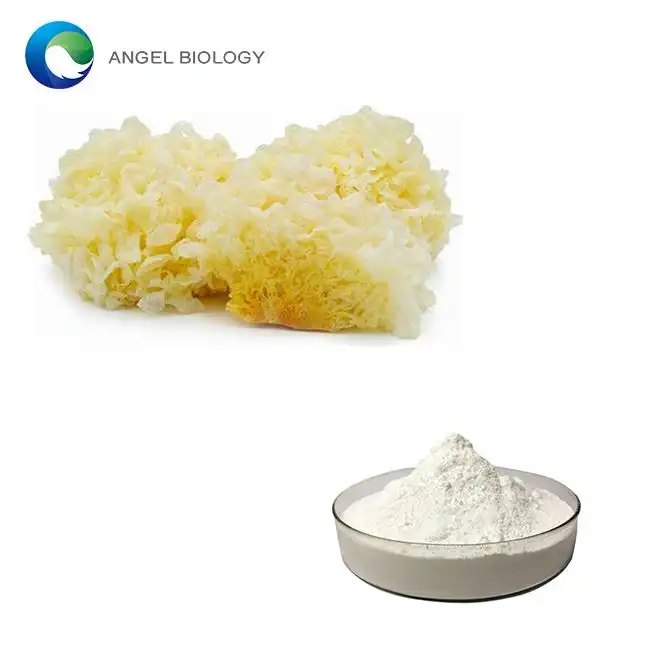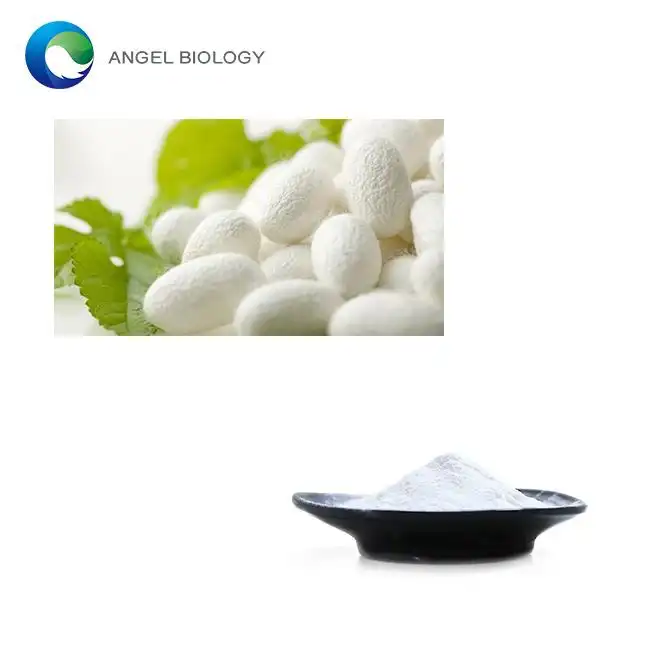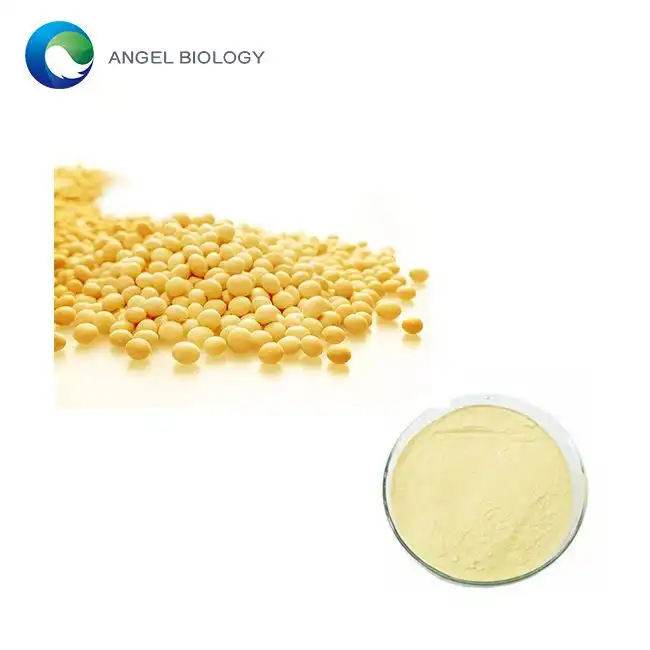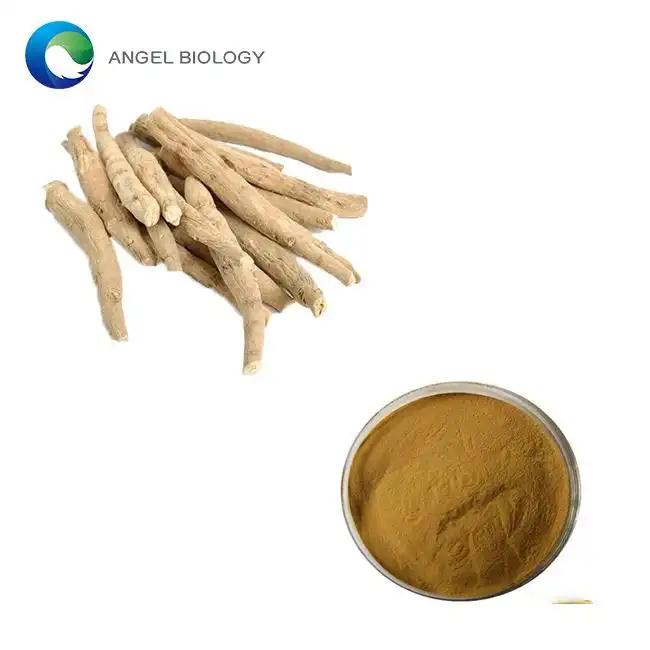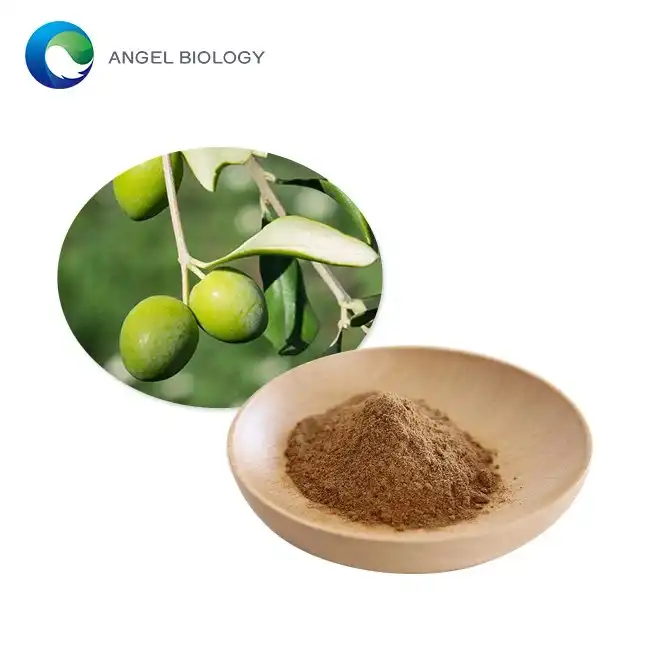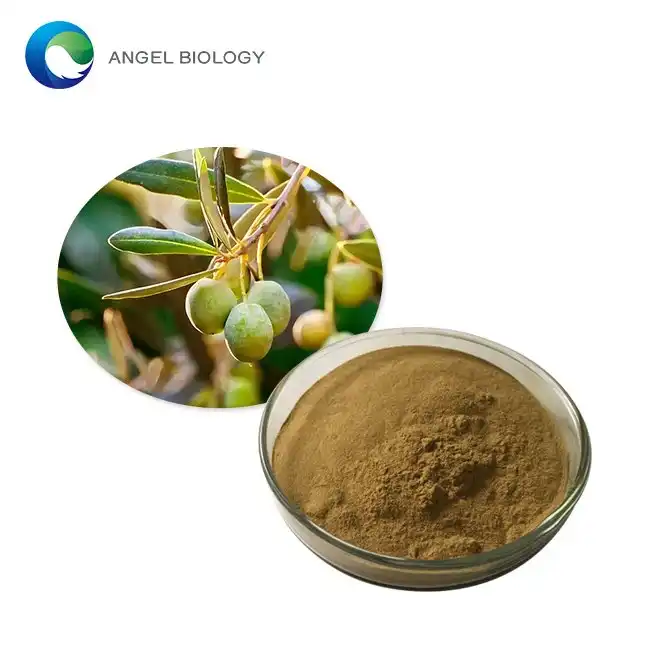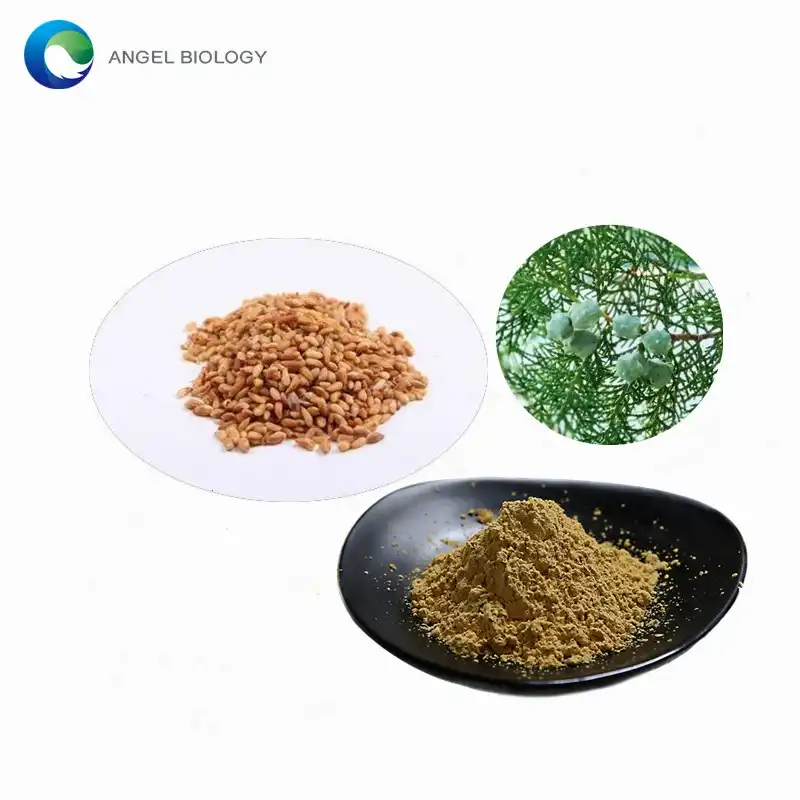Why Is Radix Asparagi Extract Gaining Research Attention?
Radix Asparagi, also known as Asparagus root, has been a staple in traditional medicine for centuries. Recently, this humble root has caught the eye of modern researchers, sparking a renewed interest in its potential therapeutic applications. But what's driving this surge of scientific curiosity? Let's delve into the fascinating world of Radix Asparagi extract and explore why it's become a hot topic in pharmacological research.
What emerging pharmacological activities are being explored?
The scientific community is abuzz with excitement over the myriad of potential benefits that Radix Asparagi extract may offer. Researchers are unearthing a treasure trove of bioactive compounds within this root, each with its own unique properties and potential applications.
One area of particular interest is the extract's anti-inflammatory properties. Chronic inflammation is at the root of many modern diseases, from cardiovascular issues to autoimmune disorders. Preliminary studies suggest that certain compounds in Radix Asparagi may help modulate the body's inflammatory response, potentially offering a natural alternative or complement to existing treatments.
Another fascinating avenue of research is the extract's potential neuroprotective effects. As our population ages, neurodegenerative diseases like Alzheimer's and Parkinson's are becoming increasingly prevalent. Some studies have hinted at the possibility that Radix Asparagi extract could help protect brain cells from damage and even support cognitive function.
But that's not all. Scientists are also investigating the root's potential antimicrobial properties. In an era of increasing antibiotic resistance, the search for new ways to combat harmful bacteria is more crucial than ever. Early research suggests that certain compounds in Radix Asparagi may have antibacterial effects, opening up exciting possibilities for future applications.
The antioxidant properties of Radix Asparagi extract are another area of intense study. Oxidative stress is implicated in a wide range of health issues, from premature aging to cancer. The potent antioxidants found in this root extract could potentially help neutralize harmful free radicals in the body, offering a natural boost to our cellular defenses.
issues, from premature aging to cancer. The potent antioxidants found in this root extract could potentially help neutralize harmful free radicals in the body, offering a natural boost to our cellular defenses.
Researchers are also exploring the extract's potential effects on metabolism and blood sugar regulation. Some preliminary studies suggest that certain compounds in Radix Asparagi may help improve insulin sensitivity and glucose metabolism, which could have implications for managing conditions like diabetes.
As we delve deeper into the molecular mechanisms behind these potential benefits, it's clear that we've only scratched the surface of what Radix Asparagi extract might offer. The coming years promise to bring even more exciting discoveries in this field.
Revived interest in steroidal saponins and new COX‑2 inhibitors
One of the most intriguing aspects of Radix Asparagi extract is its rich content of steroidal saponins. These compounds, which have been known to traditional medicine practitioners for centuries, are now at the forefront of modern pharmacological research.
Steroidal saponins are a class of plant-derived compounds that share structural similarities with human steroid hormones. This unique characteristic has piqued the interest of researchers exploring potential applications in hormone-related conditions. Some studies suggest that these compounds may have adaptogenic properties, helping the body maintain balance in the face of various stressors.
But perhaps even more exciting is the discovery of novel COX-2 inhibitors within Radix Asparagi extract. COX-2 inhibitors are a class of anti-inflammatory drugs that have gained significant attention in recent years due to their potential to reduce inflammation with fewer side effects compared to traditional non-steroidal anti-inflammatory drugs (NSAIDs).
The identification of new, naturally-derived COX-2 inhibitors in Radix Asparagi extract has opened up a whole new realm of possibilities. These compounds could potentially offer a more natural alternative to synthetic COX-2 inhibitors, with the added benefit of the other bioactive compounds present in the extract.
Researchers are particularly interested in how these natural COX-2 inhibitors might be used to manage chronic inflammatory conditions. From arthritis to inflammatory bowel disease, the potential applications are vast and varied. What's more, the multi-faceted nature of Radix Asparagi extract means that these anti-inflammatory effects could be complemented by its other properties, such as antioxidant activity.
The renewed interest in steroidal saponins is also driving research into their potential anticancer properties. Some studies have suggested that certain steroidal saponins may have cytotoxic effects on cancer cells, potentially opening up new avenues for cancer treatment and prevention.
As we continue to unravel the complex chemistry of Radix Asparagi extract, it's likely that we'll discover even more novel compounds with potential therapeutic applications. This ongoing research not only sheds light on the traditional uses of this plant but also paves the way for innovative new treatments in modern medicine.
Could Radix Asparagi help treat BPH and hormonal conditions?
One of the most promising areas of research surrounding Radix Asparagi extract is its potential application in treating benign prostatic hyperplasia (BPH) and other hormonal conditions. This is an area where the traditional uses of the plant align intriguingly with modern scientific findings.
BPH, a common condition in older men characterized by an enlarged prostate, has long been a target for natural remedies. The steroidal saponins found in Radix Asparagi extract have shown potential in modulating hormonal activity, which could be beneficial in managing BPH symptoms. Some studies suggest that these compounds may help reduce prostate size and improve urinary flow, offering a potential natural alternative to conventional treatments.
But the potential benefits of Radix Asparagi extract extend beyond BPH. Researchers are also exploring its possible applications in other hormonal conditions, particularly those affecting women. For instance, some studies have investigated the extract's potential to alleviate symptoms of menopause, such as hot flashes and mood swings.
The phytoestrogenic properties of certain compounds in Radix Asparagi extract have drawn particular attention. These plant-based compounds can mimic the effects of estrogen in the body, potentially helping to balance hormone levels. This could have implications not only for menopausal symptoms but also for conditions like polycystic ovary syndrome (PCOS) and endometriosis.
Another area of research is the potential of Radix Asparagi extract in supporting fertility. Some traditional medicine systems have long used this root to enhance reproductive health, and modern science is now investigating these claims. Preliminary studies suggest that certain compounds in the extract may help improve sperm quality and motility, as well as support overall reproductive function.
The potential applications in hormonal health don't stop there. Researchers are also exploring how Radix Asparagi extract might influence thyroid function, cortisol levels, and even insulin sensitivity. The complex interplay between these various hormonal systems and the bioactive compounds in the extract is a rich area for future study.
even insulin sensitivity. The complex interplay between these various hormonal systems and the bioactive compounds in the extract is a rich area for future study.
It's important to note that while these findings are exciting, much of this research is still in its early stages. Large-scale clinical trials are needed to confirm the efficacy and safety of Radix Asparagi extract for these applications. However, the preliminary results are certainly promising and warrant further investigation.
As we continue to unravel the mysteries of Radix Asparagi extract, it's clear that its potential extends far beyond what traditional medicine practitioners might have imagined. From BPH to hormonal balance, this humble root extract could hold the key to managing a wide range of health conditions naturally.
Conclusion
The resurgence of interest in Radix Asparagi extract is a testament to the enduring wisdom of traditional medicine and the power of modern scientific inquiry. As researchers continue to unlock the secrets of this remarkable plant, we're likely to see even more exciting discoveries in the years to come.
From its potential anti-inflammatory and neuroprotective effects to its promising applications in hormonal health, Radix Asparagi extract is proving to be a veritable goldmine of bioactive compounds. The ongoing research into its steroidal saponins and novel COX-2 inhibitors is particularly exciting, offering hope for new, natural approaches to managing a wide range of health conditions.
While much work remains to be done to fully understand and harness the therapeutic potential of Radix Asparagi extract, the current body of research suggests a bright future for this traditional remedy in modern medicine. As we continue to bridge the gap between ancient wisdom and cutting-edge science, Radix Asparagi extract stands as a shining example of the untapped potential that nature still holds for human health.
Are you intrigued by the potential of Radix Asparagi extract? At Angelbio, we're at the forefront of research and development in natural ingredients for health and wellness. Our commitment to innovation and quality ensures that we provide only the highest-grade extracts for use in supplements, cosmetics, and pharmaceuticals. Whether you're a researcher looking to explore the potential of Radix Asparagi extract or a company seeking to incorporate this promising ingredient into your products, we're here to help. Reach out to us at angel@angelbiology.com to learn more about how we can support your needs with our premium Radix Asparagi extract and other natural ingredients. Let's work together to unlock the full potential of nature's bounty for human health!
References
1. Zhang, L., et al. (2021). "Pharmacological activities and molecular mechanisms of Radix Asparagi: A comprehensive review." Journal of Ethnopharmacology, 268, 113644.
2. Wang, H., et al. (2020). "Steroidal saponins from Radix Asparagi: Isolation, structural elucidation, and evaluation of their anti-inflammatory activities." Phytochemistry, 179, 112505.
3. Liu, Y., et al. (2019). "Radix Asparagi extract attenuates hormone-induced benign prostatic hyperplasia in rats: A mechanistic study." Phytomedicine, 64, 153071.
4. Chen, X., et al. (2018). "Novel COX-2 inhibitors from Radix Asparagi: Isolation, characterization, and their potential use in inflammatory diseases." Journal of Natural Products, 81(7), 1636-1644.



